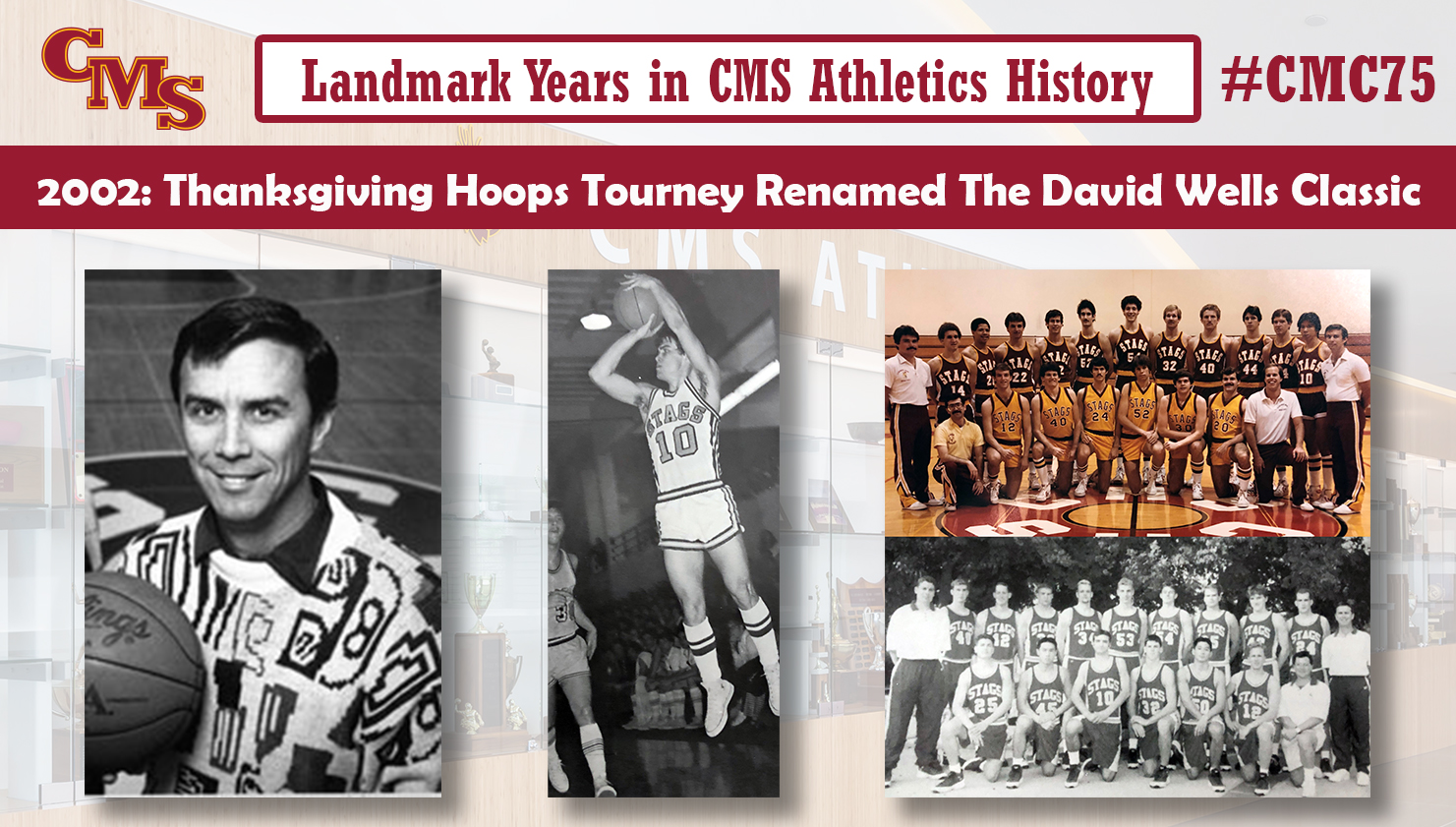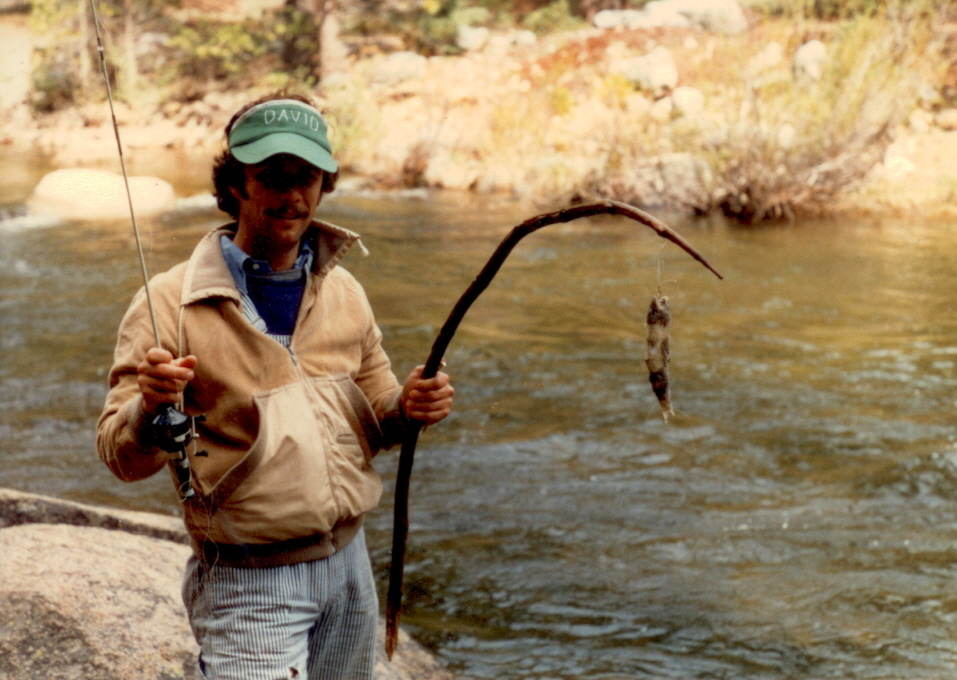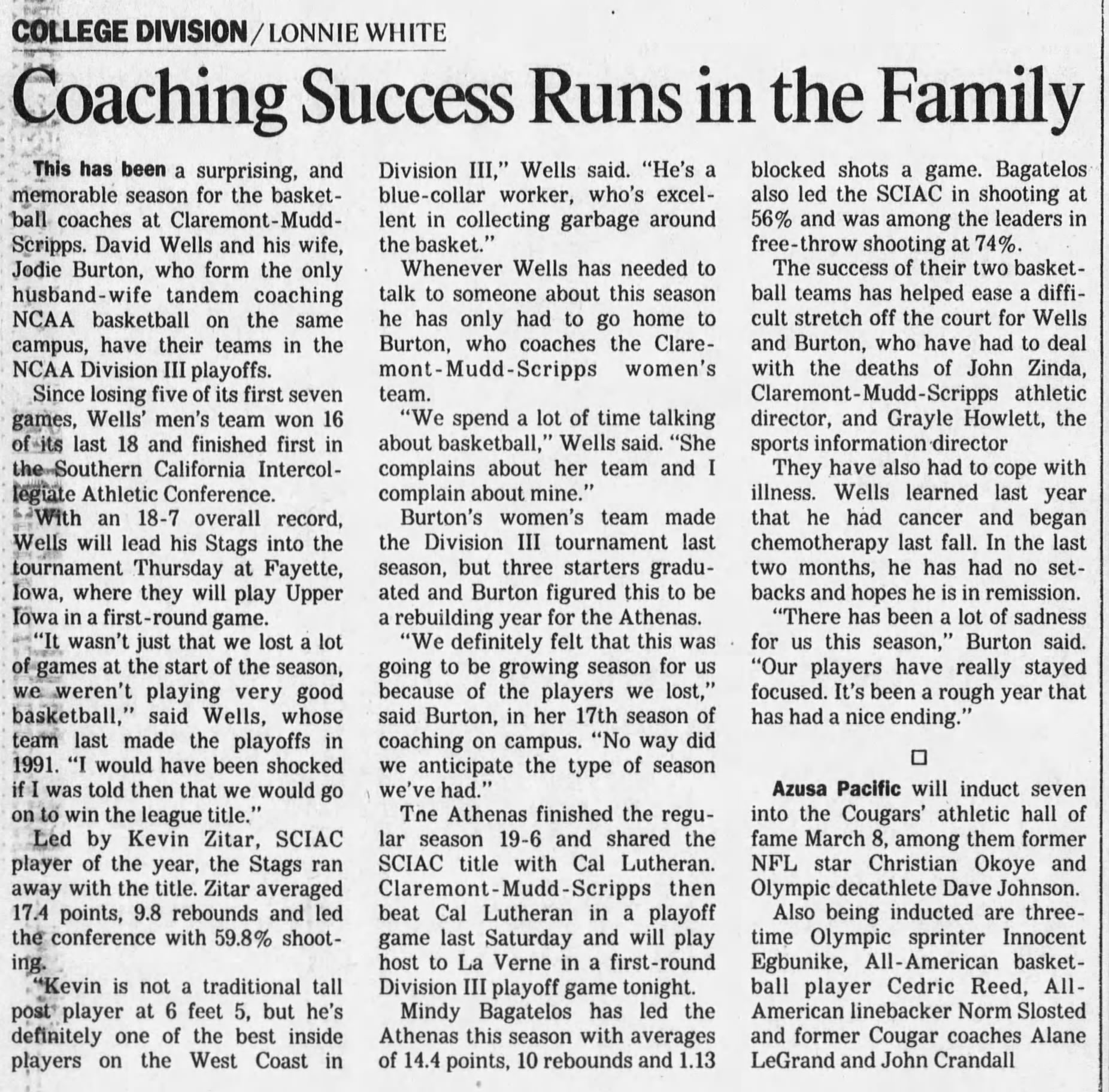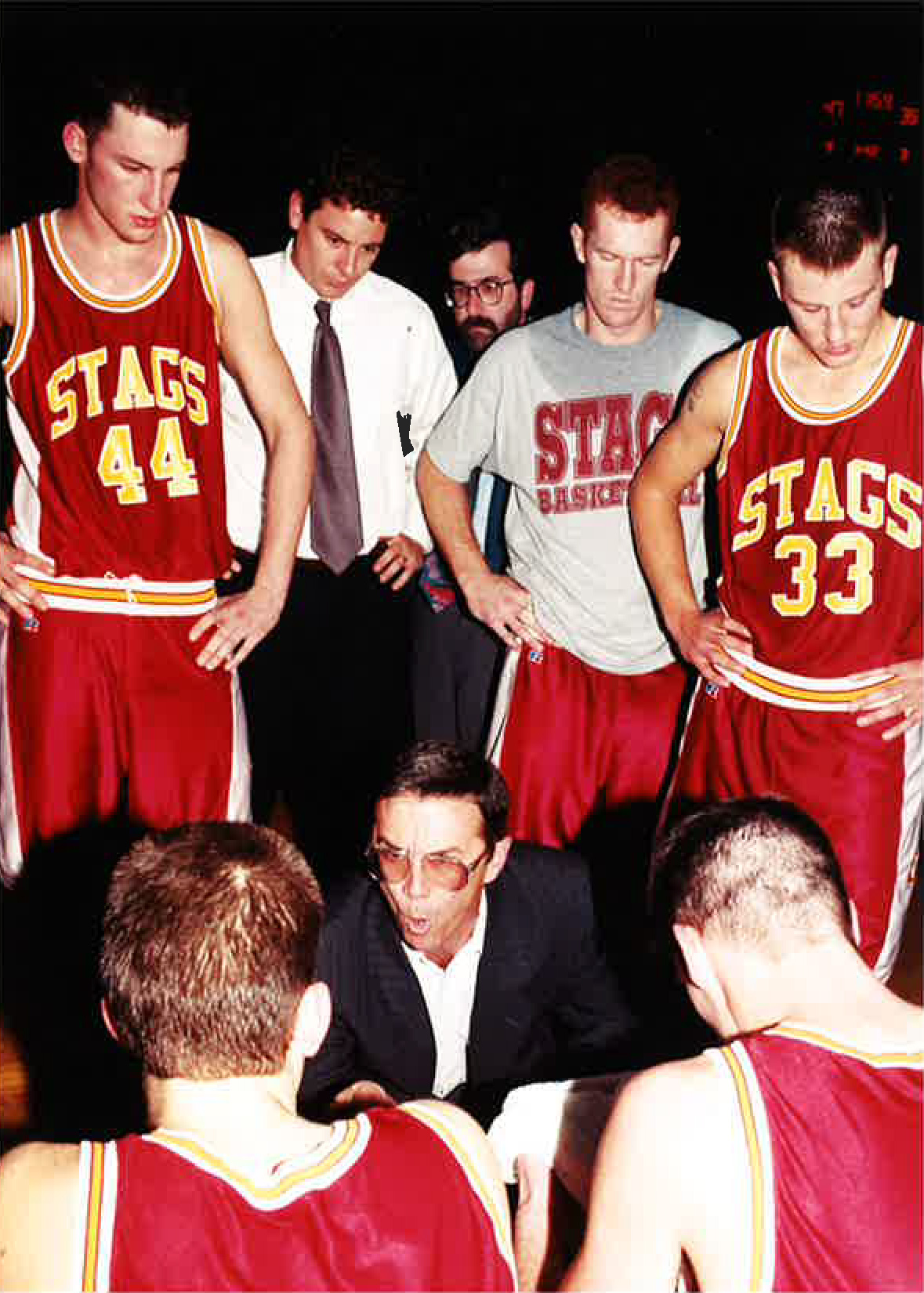
CMC75 Landmark Years (2002): Thanksgiving Basketball Tournament Named The David Wells Classic
As part of the buildup to the 75th Anniversary celebration for Claremont McKenna College (visit CMC's 75th Anniversary Countdown Page to learn more), we are reliving many of the great moments and landmark years from CMS athletic department history over the 75-day countdown from April 17 to July 1. If you would like to add to the memories of one of these moments, or if you would like to submit your memories of your own favorite CMS Athletics moment, fill out the form on our main 75th Anniversary page.
Great Moments Featured in This Story
1970 Men's Basketball: Claremont-Mudd 94, Azusa Pacific 82 (NAIA Districts)
1971 Baseball: Claremont-Mudd 5, La Verne 1 (NAIA District Finals)
1972 Men's Basketball: Claremont-Mudd Wins SCIAC by One Game
1984 Men's Basketball: CMS Earns First NCAA Bid
1991 Men's Basketball: CMS 84, La Verne 81 (SCIAC Playoff)
1996 Men's Basketball: CMS 70, Upper Iowa 58 (NCAA First Round)
2001 Women's Basketball: CMS 69, Whittier 61 (OT - SCIAC Clincher)
2002 Men's Basketball: Stags Win 13 Straight for SCIAC Title
In 2002, the West Coast Classic, an annual Thanksgiving basketball tournament featuring men's and women's games co-hosted by CMS and Pomona-Pitzer, was renamed The David Wells Classic. The fact that the tournament was held during Thanksgiving was merely a coincidence, but it was still apropos as a way to say thanks to a man who was a part of CMS Athletics for 33 years until his passing in 2001, and whose legacy remains to this day.
Wells arrived in Claremont in 1968 after being recruited from Oakland to play baseball by Head Coach Bill Arce. Wells certainly had more than enough success in baseball to warrant that recruitment, helping the Stags to SCIAC titles in 1970 and 1971, as well as a memorable NAIA District Tournament win over La Verne as a junior in 1971, and then earning second-team All-America honors as a second baseman for a 30-9 team in 1972.
But it was basketball which turned out to be his calling. Wells also was part of two SCIAC Championship teams in basketball under Head Coach Ted Ducey, capturing the 1970 title as a sophomore and then again in 1972 as a senior. He was All-SCIAC three times, NAIA All-District twice, and earned induction into the CMS Athletics Hall of Fame in 1995, when he was serving as the program's head coach.
Wells became the program's head coach in 1974, just two years after graduating, under unfortunate circumstances. He served as an assistant coach for Ducey for two seasons while getting a master's degree from Cal Poly Pomona, and was planning to pursue a different career path. Ducey, though, passed away unexpectedly in a flash flood while on vacation in September of 1974, leaving the program without a head coach entering a new academic year. Despite being barely out of college, Wells was tabbed to take over the program, a role which he did not relinquish until 1999, and only then when his health wouldn't let him continue.
In his early years, he was looking to establish a culture, which can be challenging as a young head coach not much older than the players he was trying to lead. As a player, he was part of a deep and talented senior class that left a big void with its graduation, as the program slipped from conference champions in 1972 to fifth place in 1973 and 1974.
In one of his first seasons, as he was still trying to establish his coaching credentials, Wells encountered some of his players breaking the rules on a holiday road trip to San Diego. In a move that perhaps the scriptwriters for Hoosiers borrowed some inspiration from, he sent the upperclassmen back to campus and played with four regulars, as well as one JV player who lived in San Diego and could make it to the game on time. Two more players made it to San Diego for the second half, too late to avoid a lopsided loss, but not too late for everyone to get the message.
It took some time, but those lessons were eventually learned and passed down to the younger generations, and Wells was able to build the program that he was hoping for on and off the court, leading CMS to six SCIAC titles. The first came in 1984, when he guided the Stags to an undefeated SCIAC finish at 12-0. CMS faced eventual national champion Nebraska Wesleyan in the first round of the NCAA and put up a good fight, taking a second half lead before Nebraska Wesleyan pulled away. The Stags defeated Luther in the consolation round 84-83 for their first-ever NCAA win.
From 1987-1991, Wells led the Stags to four SCIAC titles in five years, with the last one a tie that was followed by an 84-81 win over La Verne in a playoff game to earn a bid to the 1991 NCAA Tournament. That was a year in which he really showed his coaching acumen, revamping the offense in the preseason even though the Stags were coming off a SCIAC title, and achieving great success.
 "David and (assistant coach Lee Dresie) installed a new offense which involved an up-tempo push up the court and then about 5 or 6 options and as a veteran group of guys, we got really good at running it very early in the season and we were just far ahead of our opponents," said Chris Greene. "We rolled over everyone and looked good running this highly effective offense where we would score before the other team realized we were running a play. We were about 13-0 or something when league started."
"David and (assistant coach Lee Dresie) installed a new offense which involved an up-tempo push up the court and then about 5 or 6 options and as a veteran group of guys, we got really good at running it very early in the season and we were just far ahead of our opponents," said Chris Greene. "We rolled over everyone and looked good running this highly effective offense where we would score before the other team realized we were running a play. We were about 13-0 or something when league started."
Greene, who is now in the CMS Hall of Fame, was one of the best recruits that Wells ever landed, earning All-America honors as a senior. Arguably Wells' greatest recruiting job, though, came while serving on the search committee for the women's basketball coach in 1979, resulting in the hiring of Jodie Burton, who has been with CMS for the 42 years since.
Of course, as the CMS and local basketball communities well know, Wells and Burton also married in 1982 and had three sons, while serving as a husband-and-wife coaching duo at CMS for 20 years (at one point, they were the only such coaching pair in the country at the same institution). As you might expect, Wells and Burton did sometimes bring their work home with them, too.
"We spend a lot of time talking about basketball," Wells told the L.A. Times in 1996. "She complains about her team, and I complain about mine." (they were true coaches – this was from a year when they both won championships).
Wells also talked basketball with his friends and rivals, who were frequently the same people. He developed a good working relationship with his colleagues at Pomona-Pitzer, first Gregg Popovich and then Charles Katsiaficas, Popovich's assistant who took over the Sagehens when his boss left for the San Antonio Spurs and has been their head coach ever since. They were definitely rivals, in the 17 seasons between 1984-2000 when they were on opposing benches, either CMS or Pomona-Pitzer won the SCIAC 14 times, so every Sixth Street game between the two teams was vitally important. But they were friends too.
"Coach Wells was such a great competitor," said Katsiaficas. "His teams were always well-prepared, well-coached, and fundamentally sound. The 'in-game' Coach Wells was fierce, feisty, and focused. But once the game was over, regardless of the outcome, Coach Wells was a gentleman. Outside of the lines, I always appreciated our relationship; we would chat, laugh, acknowledge and appreciate each other's tactics and game adjustments, knowing that twice a year we would compete against one another for 40 minutes like there was no tomorrow. Above all, he was a great mentor and role model who understood and embraced his role as an educator."
Embracing that role helped him step into the athletic director position after the passing of John Zinda in the summer of 1995, becoming only the third AD in the 38-year history of CMS. Wells, though, was diagnosed with cancer soon after assuming double duty, and underwent radiation treatments in the early part of the 1995-96 basketball season, while still coaching the team and running the department. His team started that year slowly, but came together under the adversity.
"Coach Wells' diagnosis was something that hit all of us pretty hard, yet we had to process and deal with this individually and collectively as a group," said Joe Whitlach, a senior on the 1995-96 team. "I believe that Coach Wells' fight with cancer radiated within the team. Players could see how much he was fighting; showing up on days when he really didn't feel that good; trying to coach and elevate his voice, even when it didn't allow. There came a point during the season when all the players were 110% committed to making the season about Coach Wells. He is fighting for us, we better fight for him more."
That team would go on to win the SCIAC Championship and reach the NCAA Regional finals for the first time in program history with a 70-58 win over Upper Iowa. It was his sixth and final SCIAC Championship as a head coach (and his eighth overall, including his two as a player).
It was also a year in which both the men's and women's program's won SCIAC titles, as Wells and Burton were able to share their achievements with each other. The same thing happened in 1988 (when Burton won her first league title with an undefeated SCIAC season) and again in 1989, but this time it was a little bit different, given the adversity over the course of the year with Wells' cancer treatments, Zinda's passing and the passing of golf coach and sports information director Grayle Howlett.
 "There has been a lot of sadness for us this season," Burton told the LA Times in that same article (pictured at right). "It's been a rough year that has had a nice ending."
"There has been a lot of sadness for us this season," Burton told the LA Times in that same article (pictured at right). "It's been a rough year that has had a nice ending."
Burton and Wells would share one more championship season, but under different circumstances. Wells' cancer returned late in 1998, forcing him to step down early in the season, and hand the coaching reins to assistant Ken Scalmanini, who has held the position ever since. In 2000, with his health deteriorating, Wells stepped down as athletic director as well, handing those reins to Mike Sutton, beginning in 2000-01.
In 1999-2000 and 2000-01, when he was unable to return to the men's bench, Wells served as a volunteer assistant coach with Burton's Athenas, and CMS pulled off a memorable SCIAC title in 2001 by defeating Whittier in overtime in a battle of co-leaders in the regular season finale. It was the ninth time he could say he was part of a SCIAC Basketball Championship, counting his two as a player and six as head coach of the Stags.
Felicia Davis, the SCIAC Player of the Year on the 2001 CMS Women's Basketball team, admits she doesn't remember any of the details from that overtime win which resulted in her cutting down the nets her senior year. But the season as a whole, and the life lessons she learned from it, has always stuck with her.
"I remember being coached by Jodie and David, wife and husband, together," said Davis. "David was incredibly sick that year. His tracheotomy tube prevent him from yelling; he really couldn't talk much at all. When he wanted to get your attention, he clapped, or if he was really mad, threw a clipboard on the ground. And you had to run over and stand inches from his face to hear what he had to say.
"But they were brilliant together. An unstoppable force. They were such an amazing example of partners loving and supporting each other in everything they did. Something I try to model in my marriage. They had such limited time left together, but rather than saving it for each other, which no one would have blamed them for, they shared their gifts, passion and love with all of us. And when they won the SCIAC championship together, as partners, it was one of the best moments of my life. He, Jodie and their boys shared so much of their lives with us. I will never forget it."
After Wells and Burton shared their final championship together, David Wells passed away in July at the age of 50.
"In his years as a student, athlete, coach, athletic director, and mentor, David Wells touched the lives of thousands of people in this community," said Pamela Brooks Gann, Claremont McKenna College's president at the time. "He was a splendid human being and role model, not just to student athletes and coaches, but to us all. His professional legacy is highlighted by having crafted one of the finest Division III programs in the nation, and by the scores of young athletes who are, quite simply, better human beings for having known David Wells."
Katsiaficas, who had coached against Wells for two decades and who started the West Coast Classic with him, made a push to get the tournament renamed in his honor, and in 2002, the two athletic departments, and the four basketball programs, hosted the David Wells Classic for the first time.
"Back in the early 1990s, Coach Wells and I had the idea to start up a 'Classic', CMS and PO-PI, both the men's and women's teams, using both sites, and bringing in a couple outside teams," said Katsiaficas. "The 'David Wells Classic', as it is now known, provides an opportunity for us each season to honor and remember Coach Wells and all he meant to CMS basketball and our community."
It was actually the second great tribute to Wells' basketball legacy during the 2002 calendar year. The first was when Scalmanini and the CMS Men's Basketball team won the SCIAC title, led by a senior class that was the last group of Stags to be coached by Wells as freshmen before he stepped down.
"While I don't recall ever specifically talking about winning for Coach Wells, I do know that doing so was absolutely in our minds," said Bob Donlan, one of the members of the Class of 2002. "I certainly know that Scali felt as much. We were the last recruiting class, and the last group that he coached on the men's side. To end our careers with a championship was magical."
 Three of those seniors (Donlan, B.J. Jameson and David Cann) were named All-SCIAC, while Donlan captured the newly-renamed David Wells SCIAC Athlete of the Year Award, which was another great tribute to someone who had been part of SCIAC basketball for parts of five different decades. It was appropriate that the first winner of that honor was someone he coached.
Three of those seniors (Donlan, B.J. Jameson and David Cann) were named All-SCIAC, while Donlan captured the newly-renamed David Wells SCIAC Athlete of the Year Award, which was another great tribute to someone who had been part of SCIAC basketball for parts of five different decades. It was appropriate that the first winner of that honor was someone he coached.
"I'm not sure I would choose CMC without my time with Coach Wells," said Donlan. "He, more than anyone, represented CMC and was able to clearly demonstrate his love and connection to the school. He was such a warm, kind, gentle and fiery personality. Our time together was too short but the connection was strong and his impact remains. I have a plaque with part of the court from Ducey on the wall in my home office, the MVP trophy is on the shelf, and many fond memories of CMC, basketball and Coach Wells in my heart. Always."
Scalmanini also still keeps some memories of his time with Wells in his office. There's a picture of Wells coaching on the sideline in a team huddle, with Scalmanini listening in behind him. Inscribed underneath the photo (which is pictured at right) is something Wells once told Scalmanini that has always stayed with him:
"The only person who can take away your integrity is you. You can't count on your physique – bones break, muscles get old, and looks fade. You can't count on your brain – old age and disease can take away your reasoning and memory. But the one thing that will remain is your integrity. It will always belong to you."
And then eventually what remains is your legacy, and David Wells left an outstanding one.